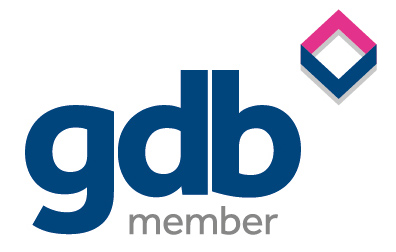Harvey John
Unit 2 Ferry Wharf
Hove Enterprise Centre
Basin Road North
Portslade, East Sussex
BN41 1BD
At Harvey John, we see it all the time: highly skilled professionals who are doing great work but struggling to get noticed. Whether it’s securing a promotion, positioning yourself for a career move, or simply ensuring your contributions are recognised, visibility is key. But how do you make yourself stand out in a way that feels natural, not forced?
That’s exactly what we explored in our latest Leadership Lab with top professional services coach, Helen Tuddenham. We sat down with Helen to discuss how professionals can build their visibility in an authentic and sustainable way, especially in hybrid and remote working environments.
Here’s what she had to say:
Why Does Visibility Matter?
Helen, many professionals assume that if they do great work, it will speak for itself. But in reality, that’s often not the case. Why is visibility so important in today’s workplace?
Helen Tuddenham (HT): People are busy! Whether it’s a recruiter, a potential employer, or even your own boss, they’re juggling multiple priorities. If you don’t actively make your contributions known, you risk being overlooked. Strategic visibility ensures that your skills and successes are recognised, and that’s crucial for career progression.
How to Build Visibility at Work
What are some practical ways professionals can build their visibility without feeling like they’re bragging?
HT: There are several simple but effective strategies:
1. Make It a Long-Term Strategy
Don’t wait until you’re looking for a new job or a promotion to start raising your profile. Think of visibility as an ongoing process. Keep track of your achievements, share them regularly, and build relationships with key stakeholders over time.
2. Keep Track of Your Wins
Managers don’t see everything you do, so document your successes. I always recommend keeping a simple spreadsheet with details like project name, your role, key outcomes, and feedback received. This makes it much easier when performance reviews, promotions, or job interviews come around.
3. Speak Up in Meetings
Even if it’s just asking insightful questions or summarising key points, contributing in meetings reinforces your presence. If you’re working remotely, be proactive in scheduling regular check-ins with key decision-makers.
4. Use Hybrid Working to Your Advantage
If you work in a hybrid setup, find out which days key decision-makers are in the office. Use those days strategically. Schedule in-person conversations, attend networking events, and prioritise face-to-face interactions. Save deep-focus work for home days.
5. Reframe Self-Promotion
If self-promotion feels uncomfortable, focus on how your insights can help others. Instead of thinking, “I’m showing off,” ask, “How is this useful to the person I’m speaking to?” When you approach it from a value-driven perspective, it feels much more natural.
6. Nominate Yourself for Awards
Many organisations have internal awards, yet few people put themselves forward. I once ran an internal awards process and was surprised at how difficult it was to get nominations. If you’re tracking your achievements, entering should be straightforward, and it’s a great way to gain recognition.
How Can Managers Support Their Teams’ Visibility at Work?
Visibility isn’t just an individual responsibility. Leaders play a key role in ensuring their teams get recognised. How can managers support their teams in this?
HT: There are several ways leaders can help:
- Advocate for your team: Give shout-outs when someone has done great work.
- Encourage public speaking: Offer team members opportunities to present their work.
- Facilitate exposure: If you can’t attend a senior meeting, send a team member instead.
- Make it part of your one-to-ones: Start meetings with a “What went well?” discussion to normalise talking about achievements.
Navigating Career Challenges
What about those tricky situations, like when someone else takes credit for your work? How should professionals handle that?
HT: First, take a step back and assess whether it was intentional. Sometimes, people genuinely don’t realise they’ve taken credit for someone else’s work. If it happens, you can subtly reinsert yourself into the conversation, mention your contributions in future discussions or prompt a colleague to ask about your role. If necessary, you can also approach the person privately and ask them to acknowledge the full team’s efforts in follow-up communications.
Preparing for Promotions and Interviews
When professionals are preparing for promotions or job interviews, what’s the best way to articulate their impact?
HT: I always recommend the STAR-V framework (Situation, Task, Action, Result, and Value). Many people stop at ‘Result,’ but adding ‘Value’, the impact your work had on the business, clients, or colleagues, makes your responses much stronger. Keeping a record of your achievements makes this process much easier.
Want to Hear More?
This Leadership Lab was packed with insights on making visibility work for you. To hear the full conversation, listen to the episode on Spotify or Apple Podcasts.
At Harvey John, we’re committed to helping professionals navigate their careers with clarity and confidence. Stay tuned for more content, and in the meantime, connect with us on LinkedIn for more career insights!







